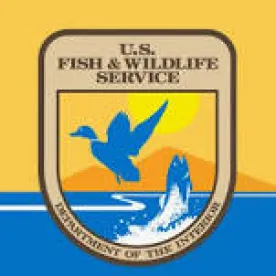On October 4, the U.S. Fish and Wildlife Service (“FWS”) announced three actions that will significantly change how the Migratory Bird Treaty Act’s (“MBTA”) prohibition on “take” of migratory birds will be enforced. First, FWS published a final rule revoking the prior administration’s January 7, 2021, rule which established that the MBTA does not prohibit the incidental (i.e., unintentional) take of a migratory bird (see VNF’s previous alert). 86 Fed. Reg. 54,642. Second, in an effort to clarify its ongoing enforcement position, acting FWS Director Martha Williams issued a Director’s Order providing guidance on how FWS will use its enforcement discretion to prosecute the incidental take of migratory birds. Finally, FWS published an Advanced Notice of Proposed Rulemaking (“ANPR”) requesting public input on potential options for a regulatory permitting regime that would authorize the incidental take of migratory birds. 86 Fed. Reg. 54,667. Continuing the recent trend of competing interpretations of the MBTA, and by reverting back to reliance on FWS’s enforcement discretion, these actions increase the uncertainty associated with MBTA compliance pending the development of a permitting regime for incidental take of migratory birds.
Background and Overview
Enacted in 1918, the MBTA states that “it shall be unlawful at any time, by any means or in any manner, to pursue, hunt, take, capture, kill, attempt to take, capture, or kill . . . any migratory bird, [or] any part, nest, or egg of any such bird.” 16 U.S.C. § 703(a). Violations of the MBTA are criminal offenses punishable by imprisonment and/or fines. While the MBTA unquestionably applies to the direct, purposeful take of migratory birds (e.g., hunting), courts are split on whether the MBTA also prohibits the incidental, non-purposeful take of migratory birds. As a result, FWS historically has relied on its enforcement discretion and voluntary compliance with certain best management practices to determine when to prosecute individuals or entities that incidentally take migratory birds. This combination of judicial disagreement and uneven use of prosecutorial discretion has created substantial uncertainty and potentially expansive liability exposure.
In January 2017, the Solicitor for the Department of the Interior under the Obama Administration issued a legal opinion interpreting the MBTA’s prohibitions—and penalties—as applying regardless of a violator’s intention or state of mind. Under this interpretation, any act that takes or kills a migratory bird is within the scope of the MBTA prohibitions. Shortly thereafter, the Trump Administration issued a superseding Solicitor’s opinion that reversed course and concluded that an otherwise lawful activity that results in an incidental take of a protected bird does not violate the MBTA. On January 7, 2021, FWS issued a final rule codifying the interpretation that the prohibitions of the MBTA only apply to actions “directed at” migratory birds, their nests, or their eggs, formally adopting the interpretation “that the scope of the MBTA does not include incidental take.” 86 Fed. Reg. 1,134. In yet another reversal, FWS’s latest MBTA actions restore the prior interpretation that the MBTA prohibits incidental take and reinstates reliance on enforcement discretion to promote compliance.
Revocation of January 2021 Final Rule
The final rule revoking the prior administration’s regulation exempting incidental take from MBTA penalties goes into effect on December 3, 2021. As justification for the reversal, FWS identifies several “legal infirmities” with the prior rule and concerns raised regarding compliance with the United States’ treaty obligations for the protection of migratory birds. Once the rule goes into effect, FWS will return to its previous interpretation that incidental take of migratory birds is prohibited by the MBTA and its prior practice of promoting compliance through the exercise of its enforcement discretion. Accordingly, as before, there will again be considerable uncertainty regarding the liability exposure of the regulated community with respect to activities that incidentally take migratory birds.
Director’s Order Clarifying FWS Enforcement Position
As a companion to the revocation rule, the acting Director of FWS issued Director’s Order No. 225 (“Order”) (effective December 3, 2021) to provide guidance as to how the agency will prioritize program and law enforcement resources in light of the return to the prior agency interpretation. Recognizing that it would not be “an effective or judicious use of [FWS’s] law enforcement resources” to pursue enforcement against the wide range of activities that may incidentally take migratory birds, the Order states that FWS will focus its enforcement on “specific types of activities that both foreseeably cause incidental take and where the proponent fails to implement known beneficial practices to avoid or minimize incidental take.” FWS also will consider the specific circumstances of each case, as well as case law in the applicable jurisdiction.
The Order lists the following types of activities as priorities for FWS enforcement:
(1) “[i]ncidental take that is the result of an otherwise illegal activity; or
(2) [i]ncidental take that:
(i) results from activities by a public- or private-sector entity that are otherwise legal;
(ii) is foreseeable; and
(iii) occurs where known general or activity-specific beneficial practices were not implemented.
Conversely, FWS will not prioritize enforcement against:
(1) “[a] member of the general public conducting otherwise legal activities that incidentally take migratory birds;
(2) [a] Federal agency conducting activities in accordance with a signed memorandum of understanding with [FWS] developed under Executive Order 13186 [Responsibilities of Federal Agencies to Protect Migratory Birds] for the conservation of migratory birds; or
(3) [a] public- or private-sector entity conducting activities in accordance with applicable beneficial practices for avoiding and minimizing incidental take.”
The Order defines a “beneficial practice” as “an action implemented in an effort to avoid and minimize the incidental take of migratory birds,” such as “best management practices, conservation measures, best practices, mitigation measures, etc.”
Notwithstanding this guidance, the scope of potential MBTA liability and what “beneficial practices” may be sufficient to mitigate enforcement risks for certain activities remains unclear. In an effort to address these risks, FWS references its website that provides examples of beneficial practices, conservation measures, and decision support tools that could help minimize MBTA liability. However, in some cases, there is uncertainty in the scope of beneficial practices that should be implemented and, for some activities that could foreseeably cause incidental take of migratory birds, beneficial practices have not been developed or endorsed by FWS. Furthermore, FWS does not state that implementation of beneficial practices will exempt or shield an entity from enforcement action, only that such enforcement will not be a priority. Accordingly, concerns about potential liability exposure are likely to persist at least until FWS implements a regulatory permitting program under the MBTA to authorize the incidental take of migratory birds.
Development of MBTA Permitting Program to Authorize Incidental Bird Take
In conjunction with the revocation of the final rule, FWS published an ANPR announcing the agency’s intent to codify the interpretation that the MBTA prohibits incidental take of migratory birds and to develop regulations to authorize incidental take under prescribed conditions. In part, FWS is requesting information on migratory bird mortality and injury associated with certain activities; beneficial practices and other criteria that could avoid and minimize migratory bird takes; and the economic costs and benefits of implementing such measures. FWS also is soliciting comments on whether and how it could authorize incidental take and under what conditions or circumstances.
Regarding the contemplated regulatory regime, FWS is considering authorizing incidental take through three primary mechanisms: (1) exceptions to the MBTA’s prohibition on incidental take (e.g., noncommercial activities and where activity-specific beneficial practices sufficiently avoid and minimize take); (2) general permits for certain activity types (e.g., certain industries would have their own general permit with certain tailored conditions); and (3) specific or individual permits (e.g., for limited situations where case-by-case evaluation and customization is necessary and appropriate). FWS seeks input on the criteria the agency would use to apply these authorizations to various activities, noting it intends to draw from existing activity beneficial practices to establish regulatory requirements and permit conditions.
Public comments on the ANPR are due by December 3, 2021, and FWS will hold six scoping meetings via webinar—three for federally recognized Indian Tribes and three for the general public—throughout late October and early November. Industry groups and/or entities conducting activities with the potential to take migratory birds should strongly consider participating in these scoping meetings and submitting written comments to help inform FWS as to how to best create an MBTA permitting regime that protects migratory birds while accounting for industry-specific requirements and practices.







 />i
/>i
